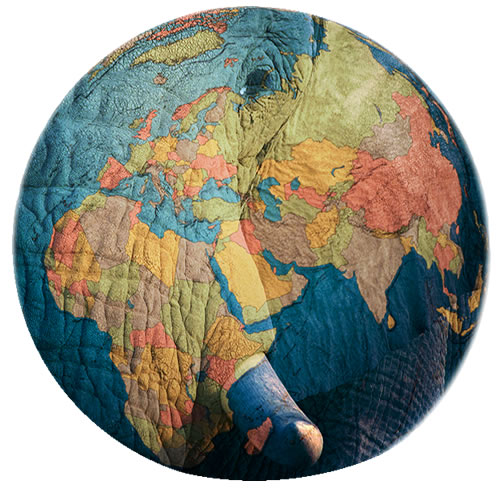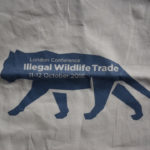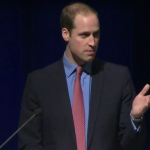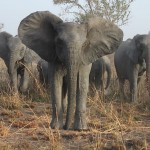
Political leaders from 41 countries pledged their support in the fight against wildlife trafficking at last week’s historic London Conference on the Illegal Wildlife Trade.
The last few years have seen a dramatic increase in global wildlife trafficking, now considered the fourth most lucrative form of transnational organized crime and totaling $19 billion annually. This grisly crisis reached the highest political levels in January 2014, prompting the U.N. Security Council to adopt a resolution sanctioning “individuals and entities” which use wildlife trafficking to support armed groups in the Democratic Republic of Congo. A separate sanctions regime targeting the link between illegal wildlife trade and regional instability was also adopted for the Central African Republic.
At the London Conference, a comprehensive Declaration “calling upon the international community to act together to bring [wildlife trafficking] to an end” was adopted by 41 countries (download it here).
The Declaration calls for a series of actions (underscored by a series of tangible action steps) to be taken in order to achieve that goal — for example, “eradicating the market for illegal wildlife products”.
“The economic, social, and environmental impacts of the illegal wildlife trade can only be effectively tackled if we eradicate both the demand and supply sides for illegal products wherever in the world this occurs.”
This section includes the endorsement of Governments who have destroyed confiscated wildlife products, and encourages the destruction of ivory and rhino horn.
” … encourage those Governments that have stockpiles of illegal products, particularly of high value items such as rhino horn or elephant ivory, to destroy them and to carry out policy research on measures which will benefit conservation. Independent audits, or other means of ensuring transparent management, should be carried out prior to destruction.”
The issue of “speculation” on endangered species products is addressed as well. There is little doubt that the “banking on extinction” lobbyists are driving the accumulation of wildlife products, notably tiger carcasses on farms in mainland China, rhino horn in South Africa’s private sector, and elephant ivory in other African countries — all with the hopes of profiting at the expense of species in the wild.
“Minimise speculation in endangered wildlife products by opposing the use of misleading, exaggerated or inaccurate information, where this could stimulate poaching, trafficking or demand.”
The Declaration seeks to ensure that wildlife trafficking is treated as a “serious crime” within the UN Convention against Transnational Organized Crime, Article 2 (b).
“Serious crime” shall mean conduct constituting an offence punishable by a maximum deprivation of liberty of at least four years or a more serious penalty
To this end, Governments committed to “adopting or amending legislation, as necessary, to criminalise poaching and wildlife trafficking, and related crimes” as well as criminalizing associated corruption and bribery used to facilitate wildlife trafficking.
“We urge all governments to become parties to, and implement, the UN Convention against Corruption, which can be a valuable tool to prevent corruption and foster international cooperation in corruption cases, including extradition, mutual legal assistance and asset recovery.”
The importance of meaningful sentences as a deterrent cannot be overemphasized. This means deploying the full range of law enforcement and legislative tools used for narcotics and firearms trafficking cases, raising awareness in the judicial sector about wildlife crime, and finally, cracking down on corruption.
“Adopt a zero tolerance policy on corruption associated with the illegal wildlife trade, recognising with great concern that corruption is an important factor facilitating the criminal activities associated with the illegal wildlife trade.”
In order to facilitate successful coordination of law enforcement across international borders — in source, transit, and destination countries — Governments agreed to use “the fullest capacity of institutions and available tools and techniques.”
“This should include, but is not limited to: criminal intelligence; controlled deliveries; traceability systems; risk profiling; detector dogs; ballistic analysis and the use of existing forensic technology, including the further development of such technologies.”
The use of the International Consortium on Combating Wildlife Crime (ICCWC) Wildlife and Forest Crime Analytic Toolkit is recommended.
The Declaration further recognizes the importance of local community engagement, stating that the capacity of these communities to “pursue sustainable livelihood opportunities” needs to be increased.
“This includes promoting innovative partnerships for conserving wildlife through shared management responsibilities such as community conservancies, public‐private partnerships, sustainable tourism, revenue‐sharing agreements and other income sources such as sustainable agriculture.”
It is worth noting at this point that South Africa was a no-show at the London Conference.
#SouthAfrica wants to cash in on #rhino horn, so unhappy #London Declaration opposes trade in wildlife products http://t.co/NW8IAKbSgM
— EIA (@EIAinvestigator) February 18, 2014
The official release by South Africa’s Department of Environmental Affairs says this was due to the opening of Parliament. However, the release also stated that “Political and technical discussions between South Africa and Britain on the proposed Declaration, prior to the Conference, failed to deliver agreement on a number of fundamental policy matters”.
S Africa calls for ivory & rhino horn trade https://t.co/2fIriXiaSd
— Bryan Christy (@BryanChristy) February 18, 2014
In his post, aptly titled “Where the **** was South Africa?“, John Sellar says, “South Africa is, arguably, the nation in the world that is currently experiencing the most determined, sophisticated and organized wildlife crime.”
“The government of South Africa needs to constantly reaffirm to its anti-poaching staff, its military and its SARS and SAPS officers that what they are doing is valued and that they can always rely on their politicians and civil servants to do their utmost to support them.”
Indeed, South Africa’s — reluctance? — to join the international community at this particular moment in history does raise questions about the country’s commitment to root out the corruption behind wildlife trafficking and enforce the rule of law, regardless of any official statement.
Fortunately, there are 41 Governments that will be working towards eradicating the market for illegal wildlife products, ensuring that wildlife trafficking is treated as a serious crime, adopting a zero tolerance policy on corruption, strengthening law enforcement, and engaging with local communities to pursue sustainable livelihood opportunities.
Here’s to moving forward in the unified goal of ending wildlife trafficking!




